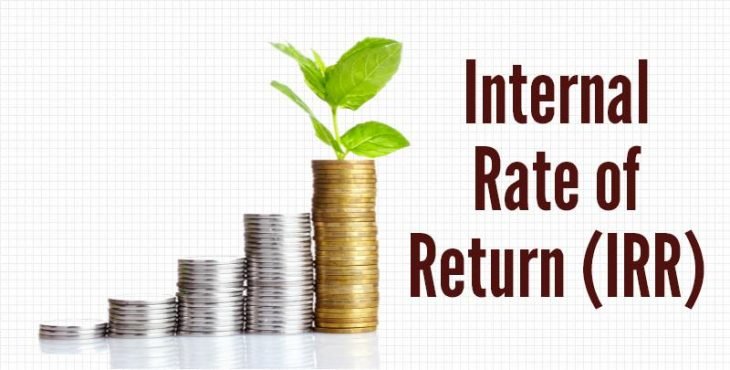Although savings bonds can be bought for as little as 25, the maximum annual amount individuals can purchase is 10, 000 per person per calendar year. Then there is the purchasing process. savings bonds are debt securities issued by the U. Department of the Treasury to help pay for the U. savings bonds are considered one of the safest investments because they are backed by the full faith and credit of the U. Tax and savings The interest earned on most savings will count towards your taxable income, but this doesnt mean youll have to pay tax on it it all depends how much interest you earn in total and what rate of tax you pay. The Education Bond Program makes the interest on certain savings bonds tax free when the bonds are redeemed to pay qualified higher education expenses or to. The laws around savings bonds aren't changing for 2018, but if someone dies with a large estate, that estate may be affected by the increase in the amount of money exempt from the estate tax. Make sure your moneys working harder, with taxfree savings options, easy access accounts and bonds you could maximise your money and boost your savings. Savings bonds issued after December 31, 1989, may be eligible for the Tax Free Education Bond Program. The program allows owners of series EE and I savings bonds to gain full, or partial, federal taxfree status for bonds used for funding a childs education. Product Rateinfo Tax Minimum Maximum per person Premium Bonds Find out more Premium Bonds 1. Rate used to calculate prize fund The odds of each 1. Dear Tax Talk, Say the owner of a Series EE bond is deceased and the beneficiary of the EE bond is 18 or younger and a lowincome college student. You have to love a government policy that removes a tax burden from your shoulders. Through the governments education tax exclusion, you can escape your tax liability when you redeem your savings bonds by using the bond proceeds to pay for higher education expenses. The Canada Savings Bond Learn about Canada Savings Bonds (CSBs), how to redeem CSBs, what happens when your bonds reach maturity, how to report a lost bond, and find out about rates and services for CSB owners. Savings Bonds are interest paying deposit products offered by banks and building societies and occasionally National Savings and Investments (NSI) for a set term. A bond of this type is really a fixed term loan from you to the provider (the bond issuer) usually in return for a higher interest rate. Capital Gains Bonds are instruments which offer tax exemption for transferring gains of long term capital assets. The Investment in these Bonds is to be made within six months from the date of. Savings bonds are only subject to federal income taxyour state does not tax them. Taxes can be deferred until you redeem the bond or until the bond reaches final maturity, whichever happens first. Q What are the rules about cashing in savings bonds taxfree for college costs? A If you cash in I bonds or EE bonds issued after 1989 and use the money for eligible. Fixed rate bonds typically last for between one and five years and the longer you are prepared to tie up your cash, the higher the interest rate will be. Tying up your savings If you have to make a withdrawal within the term you signed up for, you will be charged a penalty, usually in the form of forfeiting interest on your savings. One of the biggest benefits of Series EE savings bonds is the exemption they earn from state and local taxes. This is especially important if you are in a highincome tax bracket in a state that taxes wealth heavily such as New York. The bottom line is that it means more money in your pocket. However, all of the accumulated interest on U. savings bonds is taxable in the tax year they mature. This must be reported on your tax return. You will receive a Form 1099INT tax notice in the tax year that the U. Please be aware that when filing your income taxes for 2009 earnings, the IRS has decided that all refunds due clients will be paid in US Savings Bonds unless you choose to opt out. If you use savings bonds to pay for qualified higher education expenses, the IRS will waive your tax bill. You must be at least 24 years old when you buy the bonds. Tax Free Bonds: The income by way of interest on these Bonds is fully exempt from Income Tax and shall not form part of Total Income as per provisions under section 10 (15) (iv) (h) of I. Form 8815 Exclusion of Interest From Series EE and I U. Savings Bonds Issued After 1989 Form 8818 Optional Form To Record Redemption of Series EE and I U. Savings Bonds Issued After 1989 Form 8888 Allocation of Refund (Including Savings Bond Purchases) Savings Bonds 1 English; Question. I cashed some Series E, Series EE, and Series I savings bonds. report the savings bond interest with your other interest on the Interest line of your tax return. The Sad Story of Savings Bonds By Terry Savage There was a time when millions of dollars of U. Savings bonds were sold in June for graduation gifts, for wedding gifts, and just because of the. The bonds will be exempt from WealthTax under the WealthTax Act, 1957 Nomination This facility will be available for Individual investment on sole holder or surviving holder basis. Savings Bonds are subject to Federal Income Tax and free from state and local income taxes. The difference between the purchase price and redemption value of. IRS Publication 17 talks about an Education Savings Bond Program that allows you to use the proceeds from savings bonds to pay higher education expenses (and, I've been told, to fund a 529), thereby avoiding paying taxes on the accrued interest). Reporting Paying Taxes on Savings Bonds. Can you avoid paying taxes on Savings Bonds? There are two important ways you can report the taxes from the interest earned on your US Savings Bonds. Please be sure to read which one is beneficial for you after reviewing it with your own personal tax accountant or tax attorney. Cash Method Guaranteed Income Bonds and Guaranteed Growth Bonds pay returns with basic rate income tax deducted at source (at, currently, 20), although nontaxpayers can reclaim this tax. For other products, returns are taxable but paid gross (without tax taken off). The tax implications of individual bonds are fairly straightforward: If an investor owns bonds that generate taxable income (which covers almost all bonds except for municipal bonds, in general), he or she is taxed on that income in the year it's received. Savings bonds are subject to estate, inheritance, gift or other excise taxes, whether federal or state. A common misconception by savings bond owners is that the deferred interest isnt taxable. UK, wed like to know more about your visit today. Well send you a link to a feedback form. It will take only 2 minutes to fill in. The education tax exclusion can help you avoid paying taxes on savings bonds interest. But you have other options to mitigate the tax bite. The education tax exclusion can help you avoid paying taxes on savings bonds interest. But you have other options to mitigate the tax bite. Interest earned on savings bonds is subject to Federal income tax, but not State or local income tax. You may elect to pay tax on interest annually as it accrues or defer the tax until the bond is cashed or reaches final maturity. Bonds shall mature on the expiration of a period of seven years from the date of issue Get tax benefits While the interest on bonds is taxable, wealth tax is exempted EEE Savings Bonds; I Savings Bonds; Tax Advantage Calculator. Feel free to change the default values below. Then, click the calculate button to see how tax advantages factor into your savings bond earnings! For more information, click the instructions link on this page. savings bonds: Plus, they also offer some tax advantages. You knew I'd get to tax eventually. You knew I'd get to tax eventually. First, Series EE savings bonds are exempt from state and local income taxes. The savings bond education tax exclusion permits qualified taxpayers to exclude from their gross income all or part of the interest paid upon the redemption of eligible Series EE savings bonds and Series I savings bonds issued after 1989, when the bond owner pays qualified higher education expenses at eligible institutions. Bear in mind that savingsbond interest is subject to federal income tax, though not to state or local tax. You can either report it and pay tax every year that you hold the bond or wait until the. While savings bonds do not earn high interest, the low interest rate is sometimes compensated by favorable tax terms. Remember, you can use the money you do. Tax Savings Bonds 2015: There are a number of tax saving bonds one can choose from, each unique in their own way. Some of the popular tax saving bonds of 2015 are mentioned below. Savings bonds are subject to federal income tax, but not state and local taxes. Potential returns Currently, savings bonds provide a tiny return Series EE bonds issued from Nov. There is no state or local income tax on U. Warning: Cashing in a lot of bonds in one year could result in enough interest income to put you in a higher tax bracket or push. Can I buy savings bonds for a child, grandchild or someone else using this tax refund method? You can use your refund to buy savings bonds and designate ownership or coownership for someone else, such as a child, grandchild or anyone, or elect a beneficiary using form 8888. The interest that your savings bonds earn is subject to: federal income tax, but not to state or local income tax any federal estate, gift, and excise. You can reclaim tax paid on your savings interest if it was below your allowance. You must reclaim your tax within 4 years of the end of the relevant tax year. Fill in form R40 and send it to HMRC. The interest that your savings bonds earn is subject to federal income tax, but not to state or local income tax any federal estate, gift, and excise. Savings bonds are one of those inheritances that can come with hidden tax liabilities and you won't know the extent of them until you figure out how the decedent handled the bonds during her lifetime. According to Treasury Direct, interest from EE U. savings bonds is taxed at the federal level but not at the state or local levels for income. This interest is also taxed through federal and. Canada Savings Bonds and Canada Premium Bonds Payroll Savings Plan owners: All bonds are paid out by cheque or direct deposit upon maturity. Certificated bond owners: Redeem matured bonds at your financial institution..











